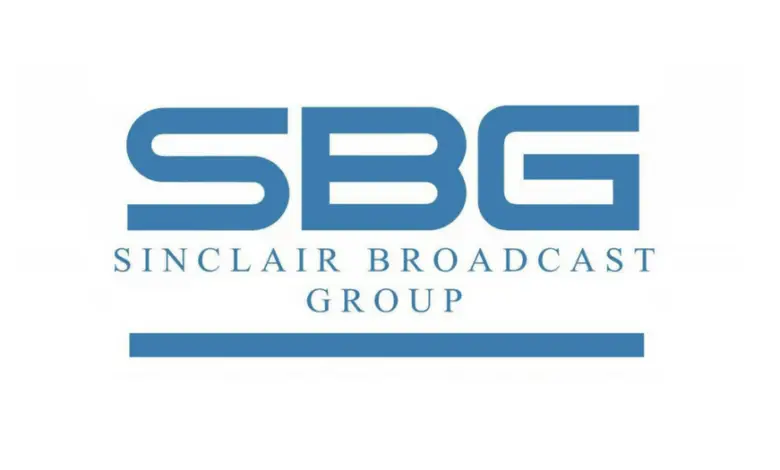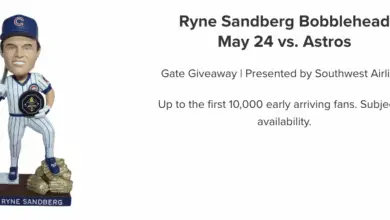
Sinclair Primed to Launch Direct-to-Consumer Sports Streaming App, MLB Participation Still Minimal
Sinclair has been working for a while now to launch a direct-to-consumer streaming app with the goal of eliminating those pesky subscriber authentications for folks who don’t have access to regional sports networks. Per Bloomberg, the venture from Diamond Sports Group has secured $600 million in financing via “a new super-priority first-lien loan from an existing group of secured creditors” and could go live at some point in the first half of the year.
The biggest hurdle has always been securing digital rights for teams in various sports, as those leagues’ relationships with broadcast partners are too important to risk by allowing a streaming service to usurp them. But money talks, and an extra $350 million — Sinclair was initially said to be aiming for $250 million in funding — may have greased a few balky wheels.
Bloomberg is reporting that Sinclair has indeed landed the rights to all 16 NBA teams (no Bulls) whose games are already carried by one of the Bally Sports RSNs, a huge coup for the new service. Combined with securing the digital rights to 12 NHL teams (no Blackhawks) late in 2021, Sinclair should now have enough momentum to get the app off the ground. There are still some drawbacks, though, particularly for baseball fans and those of you who already feel gambling has become far too ubiquitous in sports broadcasts.
I’ll get to the MLB part in a bit, particularly the Cubs, but let’s first address the notion that this figures to be a product with a very gambling-heavy feel. After all, we’re talking about RSNs that are already branded with the name of a gaming company. Given the existing partnership and the trajectory of the market, it’s pretty obvious that Sinclair will be maintaining or expanding the betting angle.
The Cubs are doing the same in their own right, building a massive sportsbook at the corner of Addison and Sheffield that somehow doesn’t infringe upon Wrigley Field’s federal landmark status. But if you’re hoping the new Sinclair app will mean making Marquee games available to fans who don’t have cable or who live outside the team’s broadcast territory, you may have to wait for a while.
“And then as it relates to the leagues that we have, for MLB, we have linear and authenticated streaming rights for all teams, and we have direct-to-consumer rights now for four teams [emphasis mine], which are all the teams that we’ve renewed post-acquisition,” Sinclair CEO Chris Ripley shared on an earnings call in November. “And our expectation there is that we will accumulate more direct-to-consumer rights as teams renew.”
Ripley’s optimism loses a little of its shine when you consider how Rob Manfred absolutely trashed Sinclair’s plans for its streaming service back in October. Of course, that additional money and baseball’s potential to fall further into irrelevance as the lockout drags on could have the commissioner singing a different tune. Given how MLB’s broadcast rights are so heavily skewed toward the postseason, there would seem to be plenty of leeway when it comes to making something work on regular-season games.
The Cubs are in a very interesting position here as well because they do not fall under the same umbrella as the Bally RSNs despite being partners with Sinclair. Given how adamant Cubs management was to have an in-house production rather than simply selling their broadcast rights to an existing RSN, it’s hard to believe they’d want to negotiate their DTC digital rights as part of a larger group.
Then again, the tremendous struggles Marquee has experienced from a carriage standpoint could serve to have Tom Ricketts and Crane Kenney looking for new distribution avenues wherever they can find them. The Cubs missed out on the opportunity to capitalize on the sports broadcast boom that saw the Dodgers and other teams reaping huge windfalls without having to put in a dime of their own money, so those wheelbarrows of cash Kenney boasted about were replaced by a few rolls of coins.
If the Cubs indeed depend on gameday activities for 70% of their revenue, which I believe is only true inasmuch as Marquee simply isn’t generating as much as they’d like, missing out on games due to the labor situation would be disastrous. Not only would the team miss out on gate and concessions, but Rickettsville can’t capitalize on all those fans spending money at restaurants and rooftops.
What’s more, Marquee won’t have any live games to play for those fans who have access to it. Even if everything is solved without losing a single day of spring training or the regular season, the Cubs might want to do what they can to get their product to as many fans as possible. Season-ticket interest has waned to the point that the club has begun offering half-season packages as the vaunted waiting list is being burned through like a bad bullpen.
Getting Marquee onto a DTC platform would not only provide a new revenue stream for the Cubs, it might also stoke ticket interest among those fans who’ve been alienated by the move away from terrestrial coverage. Ah, but there is just one more sticking point here and it’s a big one: The reported cost for Sinclair’s new service is $23 per month.
That figure came from a New York Post report from last June and was based on what Sinclair had been telling potential investors while working to raise that initial $250 million. More funding could mean decreasing that subscription fee, though it’s also possible the report was incorrect or that the conversations were misleading. Little else is known about the new app in general, so all we’ve really got at this point is speculation.
What I think I can say definitively, however, is that paying $20 or more just for the sports version of Netflix is going to be a non-starter for a whole lot of folks. That’s more than ESPN+, Disney+, Hulu, or actual Netflix, most or all of which the people in Sinclair’s target market already have.
I’ll withhold further judgment until we get more details about exactly how this thing is going to work and what other teams are featured, but I’m struggling to see any real value in it at this point.
Ed. note: Joe Lucia of Awful Announcing covered this topic as well and listed out the NBA and NHL teams in question.
NBA
- Atlanta Hawks
- Charlotte Hornets
- Cleveland Cavaliers
- Detroit Pistons
- Dallas Mavericks
- Indiana Pacers
- LA Clippers
- Memphis Grizzlies
- Miami Heat
- Milwaukee Bucks
- Minnesota Timberwolves
- New Orleans Pelicans
- Oklahoma City Thunder
- Orlando Magic
- Phoenix Suns
- San Antonio Spurs
NHL
- Anaheim Ducks
- Arizona Coyotes
- Carolina Hurricanes
- Columbus Blue Jackets
- Detroit Red Wings
- Dallas Stars
- Florida Panthers
- Los Angeles Kings
- Minnesota Wild
- Nashville Predators
- St. Louis Blues
- Tampa Bay Lightning

